Research cooperation between Lower Saxony and Israel
Since its foundation, the German Technion Society has supported the Technion in maintaining and improving the quality of its teaching and research. This includes the promotion of scientific and economic cooperation, such as the administrative support of the Lower Saxony-Israeli joint projects, today’s “Research Cooperation Lower Saxony-Israel” program. Even 45 years after its foundation, the program is still extremely successful. The state of Lower Saxony promotes its young scientists and scientific cooperation far beyond the state’s borders in a unique way. The DTG takes over the supervision of the young Israeli scientists and provides support in all areas that require German-speaking administrative specialists.
The 25th anniversary of the Lower Saxony-Israeli joint projects (PDF Download) took place during the term of office of Science Minister Dr. Thomas Oppermann.
The successful first 45 years of the program were celebrated with a joint ceremony during the delegation trip of Lower Saxony’s Science Minister Björn Thümler and his State Secretary Dr. Sabine Johannsen to Jerusalem in May 2022.
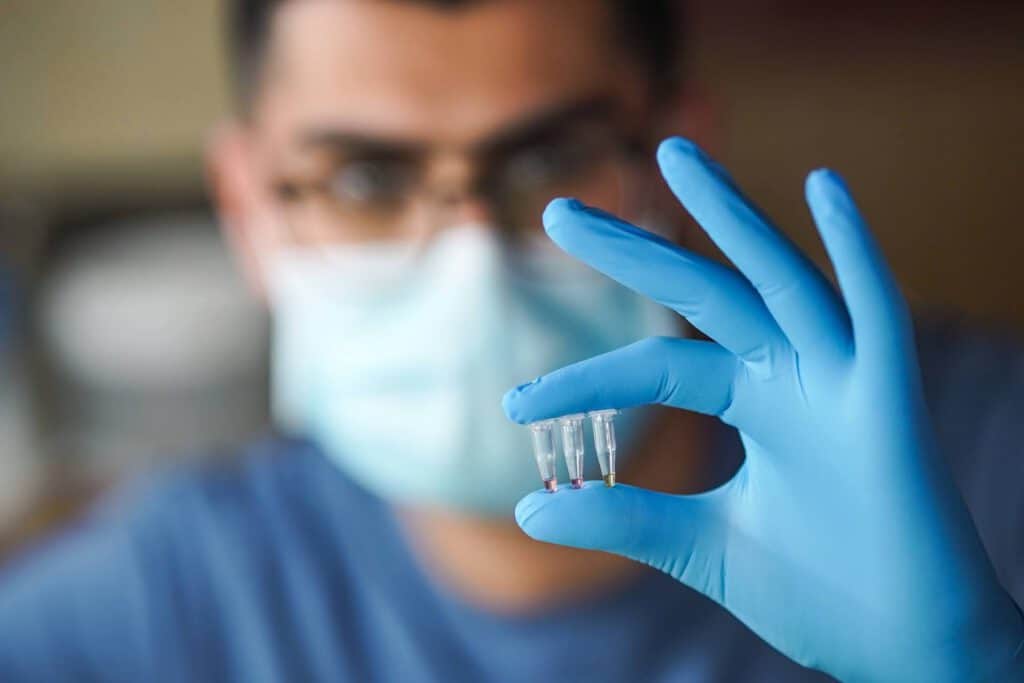
Prof. Dr. Ester Segal, Vice President for Research at the Technion and a successful applicant, recalled the beginning of the joint projects: These began in 1977 with a project in religious studies that the universities of Göttingen and Jerusalem wanted to work on together but had no funding available. They asked the Lower Saxony MWK for funding that might also help with follow-up projects or similar connections. This can be seen as the starting signal for the joint projects, as the Ministerial Director Dr. Hodler established the basis for future funding with Israeli partners at the MWK. The Technion and the engineering sciences were added to the program in 1982 at the suggestion of the then Minister of Science. In the early years, the Israeli universities benefited more financially than their partners in Lower Saxony.
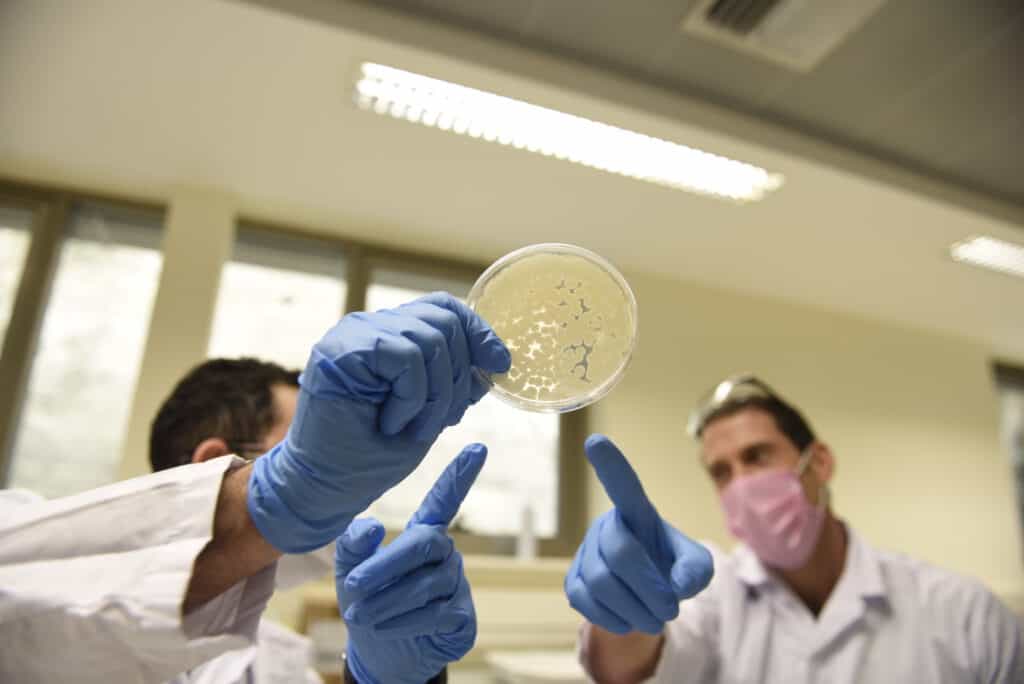
Over the course of the 2000s and due to the high density of research in the field of life sciences in Israel, the distribution of funds between the applicants became more equal. These scientifically excellent cooperation projects also include research projects such as that of Prof. Dr. Ottilie Bakker-Grunwald from the University of Osnabrück with Assistant Professor Aaron Ciechanover from the Technion, long before the latter received the Nobel Prize in Chemistry in 2004.
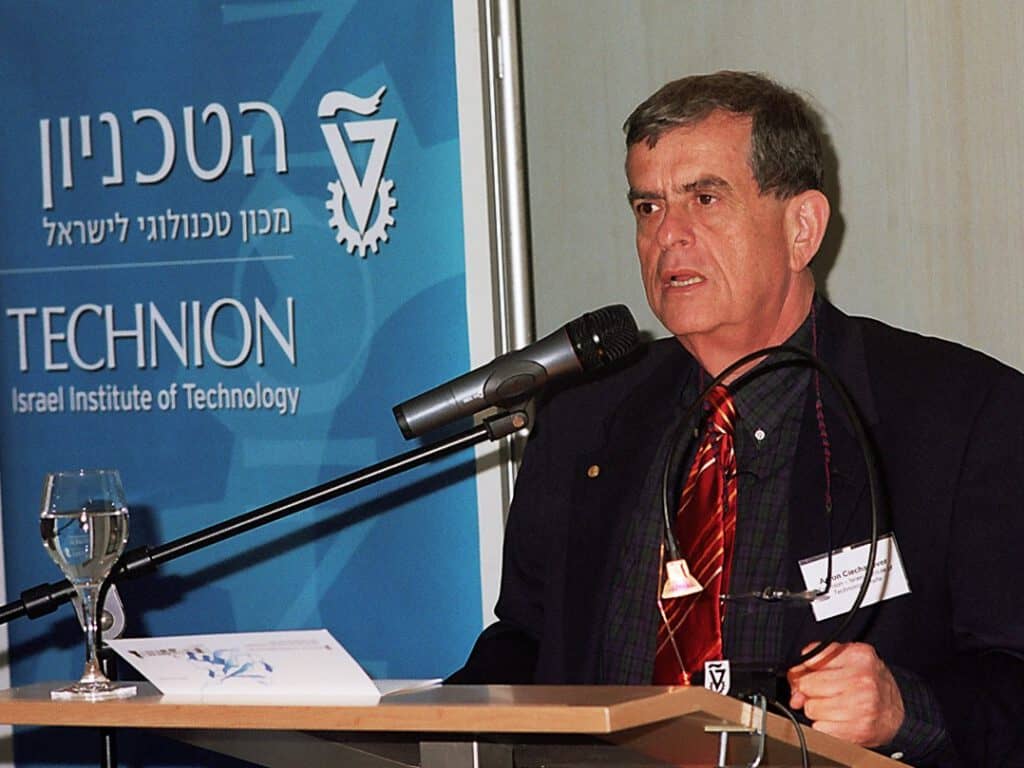
Prof. Segal added that she had been unsuccessful several times in submitting applications, but that the joint preparations for the applications had enabled her to get to know and appreciate many scientists from Lower Saxony, with whom she still cooperates elsewhere today. They have also helped to develop other forms of cooperation with them, such as the dual PhD program. The MWK’s “Research Cooperation Lower Saxony-Israel” program would therefore go far beyond the joint projects funded.
Umbrella Symposia
Shortly after its re-establishment, the German Technion Society launched the Umbrella Symposium. Since 1984, it has linked RWTH Aachen University, Forschungszentrum Jülich and the Technion – Israel Institute of Technology – in Haifa. The then North Rhine-Westphalia Minister-President Rau was one of the most committed supporters of this cooperation. Annual symposia on changing topics are held at one of the three research locations. Since 2004, the three institutions have been funding selected scientific cooperation proposals with a small start-up budget for the preparation of third-party funded project proposals.
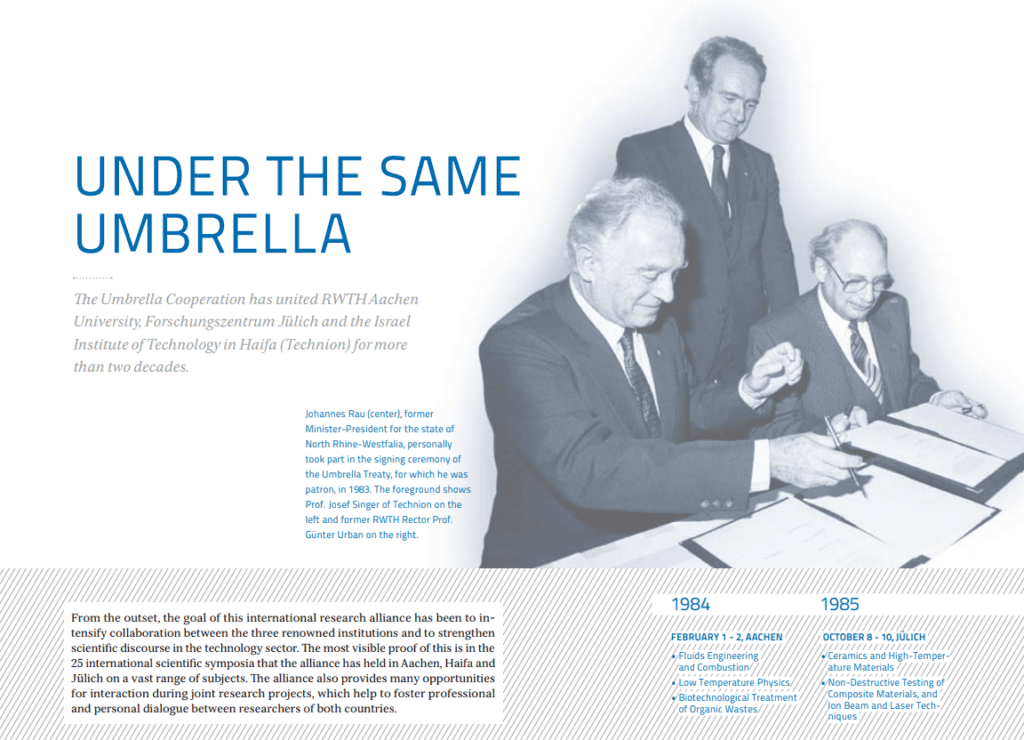
The 25th Umbrella Symposium in Aachen in 2011 served as the main event of the first German-Israeli Forum for Research Cooperation (DIFF). From 2018, the Umbrella Award will be presented to one young scientist from each of the three institutions. They will be honored for the best cooperation projects submitted. The German Technion Society participates in the €5,000 awards for the Israeli prize winners.
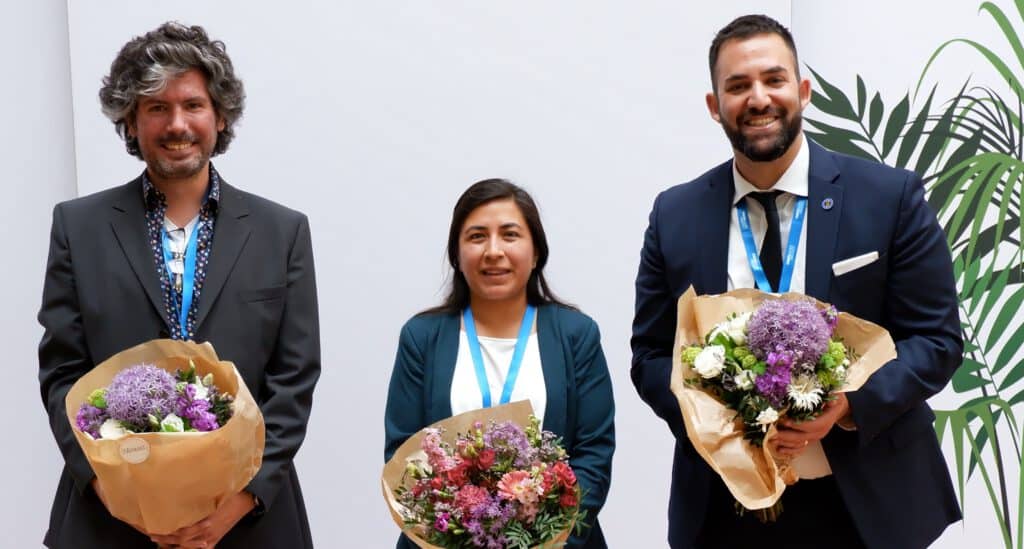
Lower Saxony-Israeli scientific conferences
Since 2013, “Lower Saxony-Israeli Scientific Conferences” have been held in Hanover every two years to present the results of the Technion’s currently funded cooperation projects with universities in Lower Saxony. Young scientists can present their own work at poster exhibitions and find future cooperation partners.
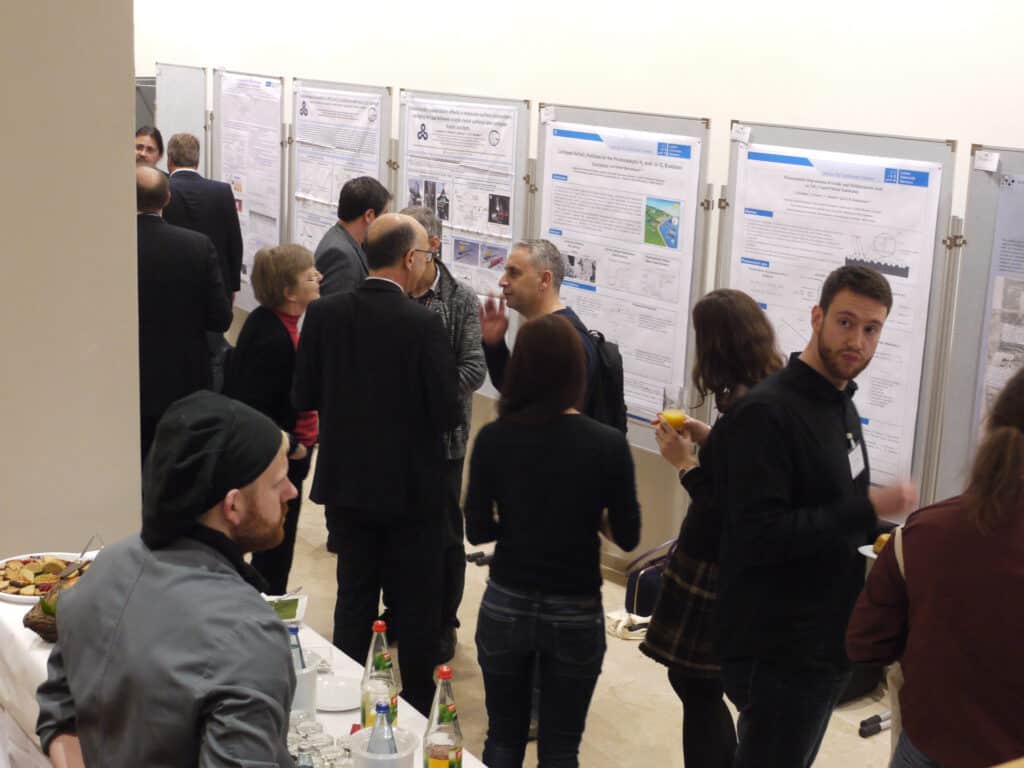
Symposia sponsored by the Reinhard Frank Foundation
To mark the 50th anniversary of German-Israeli diplomatic relations, the 2015 conference was hosted by the Volkswagen Foundation at Herrenhausen Palace. The program (PDF Download) is sponsored by the State of Lower Saxony, the Friends of LUH and various companies. A brochure with brief descriptions of all projects (PDF download) provides a good insight into the diverse topics.
The “Green Photonics Symposium” (PDF Download), an annual scientific cooperation between the Technion and the TU Berlin, was organized by the DTG in the years 2014-2016. The program received funding from the Reinhard Frank Foundation and took place alternately in Haifa and Berlin. This was followed by annual “Symposia on Quantum Physics” (PDF Download) in Würzburg, Haifa and Munich from 2017.
General
For universities and scientists from Germany, the German Technion Society establishes contacts with colleagues at the Technion. DTG also offers themed trips (PDF: Program example Engineering Delegation ), during which meetings are held in the relevant departments and with Technion scientists, research on the topic is presented and Technion alumni spin-offs are visited. The aim of these focus trips is networking and cooperation between the universities. Corresponding programs are also offered for industry.